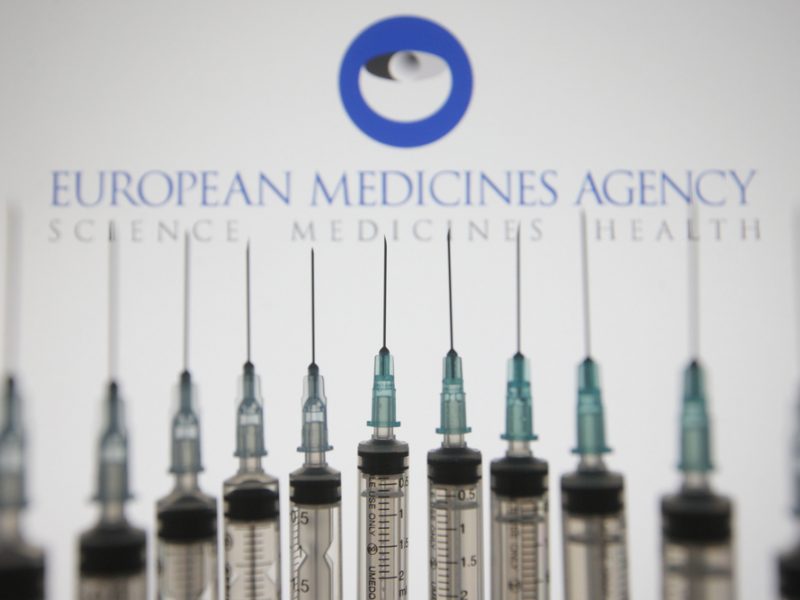
European parliamentarians adopted with a large majority a report aiming to simplify the fee structure of the European Medicines Agency (EMA) during a plenary session on Wednesday (12 July).
With 595 votes for, 25 against and 25 abstentions the European Parliament gave the green light to the report.
“This will modernise a lot the structure of the fees paid to the European Medicines Agency,” the rapporteur of the text, Romanian MEP Cristian Silviu Bușoi from Christian Democrats, said right after the vote.
The current fee system, in place since 1995, regulates EMA fees charged to marketing authorisation holders and applicants for obtaining and maintaining EU-wide marketing authorisations for medicinal products for human and veterinary use.
When companies make a request related to a marketing authorisation for medicine, they have to pay a fee to EMA for the agency’s assessment. This fee also includes the remuneration paid by EMA to national authorities involved in the assessment.
The Commission proposed the update in 2022, following an evaluation of the fee system in 2019, which indicated the need for more flexibility for adopting future developments and more sustainability in the long term.
The COVID pandemic has granted new missions to the EMA, and so will the European health dataspace and the new pharmaceutical legislation in the coming months, making the current funding structure no longer efficient.
This is something that Bușoi wanted to address: “I wanted to make sure that the EMA will have the necessary funds in order to fulfil its new tasks”, he told EURACTIV during a press conference on Tuesday.
The main amendments from the Parliament concern the independence of the agency to ensure public trust in the legislative and regulatory framework for pharmaceuticals in the Union.
“Therefore, sufficient funding should be allocated to the Agency so that it can carry out its obligations and transparency commitments”, the amendment says.
Bușoi told EURACTIV that “most of the budget is coming from private sources, we need to make sure that EMA will remain independent and impartial. That’s why there is a need to have a good structure of fees in order to work properly”.
The MEPs want transparency not only concerning the fees but also the EMA’s work and its decision-making process on funding.
For that, another amendment says, Parliament wants “information on the decisions for further fee reductions publicly available on its [EMA’s] website, including on the recipients and the reasons for the decision for further fee reductions“.
The Parliament’s proposal also included NGOs and academia as the sectors which could benefit from fee reduction, while the Commission’s proposal only mentioned small- and medium-sized enterprises (SMEs).
Bușoi hopes the new regulation will be set up by December 2023.
The pharma industry also welcomed the adoption of the report.
“The revision of the EMA fees regulation offers an opportunity to make Europe’s regulatory network more globally competitive by ensuring that sufficient financial resources go to the European Medicines regulatory network”, Nathalie Moll, director general of The European Federation of Pharmaceutical Industries and Association (EFPIA), said in a press release.
Green light from EU health ministers
The proposal to revise the EMA fee structure was originally published by the Commission on 13 December 2022. The European Council agreed on a more modern and simplified fee structure on 13 June, under the Swedish presidency, before Spain took over on 1 July.
The Parliament’s Committee on the Environment, Public Health and Food Safety (ENVI) voted on the file on 27 June.
ENVI MEPs agreed with the Council’s position on the need for the fees paid to the agency to be proportionate to its work. For that, they also voted for a transparent evaluation of the agency’s estimations for workload and costs.
Follows the extended EMA’s mandate
The fee revision follows the extension of the agency’s mandate. It was extended in March 2022, but already six months in, EMA’s Executive Director Emer Coke warned that “we need more resources to deal with the increase in workload” at an ENVI hearing in Parliament on 25 October 2022.
Under the extended mandate, the EMA monitors how public health emergencies affect the supply of critical medicines. It also has to formally coordinate actions at the EU level to guarantee supply.
The EMA’s Emergency Task Force (COVID-ETF) got a reinforced role in developing new medicines by supporting their authorisation and conducting safety monitoring, both during the current crisis and in preparation for future ones.
The EMA also announced in February the establishment of the Coordination Centre for Data Analysis and Real-World Interrogation Network (DARWIN). Its role is to develop and manage a network of real-world healthcare data sources across the EU and conduct scientific studies requested by medicines regulators and other stakeholders.
Additionally, since 1 March, the EMA has been responsible for coordinating EU expert panels that support and advise on the scientific assessment of specific medical devices and in-vitro diagnostics.
[Edited by Giedrė Peseckytė/Zoran Radosavljevic]









